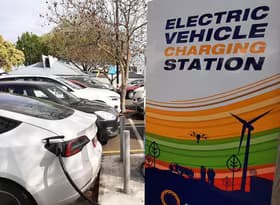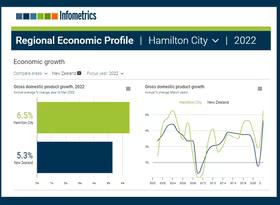Giving the Pacific a bigger slice
Each year I make a small transfer to a tax consultant in my home country who is sorting out my tax affairs. To make the transfer I need to go into a branch of my bank, stand in a queue, fill out a form and pay $25 for the privilege of using their services. The process seems antiquated and overpriced in a world of online banking and electronic transactions. There is clearly a market opportunity to be exploited. Some Kiwi entrepreneurs are rising to the challenge and slashing the cost of making international transfers.
For me the laborious international money transfer process is a minor inconvenience and I can well afford the fee. But for many low-income people living in New Zealand and supporting families in developing countries the process bleeds their home communities of much needed funds.
Transferring money to the Pacific Islands is notoriously expensive and has some of the highest remittance charges in the world. If I were to use my bank to send $200 to Tonga nearly $40 would be swallowed up by fees. Money transfer operator Western Union charges a lower upfront fee of $14, but this still amounts to a sizeable chunk of the original amount. Across all means of remitting money to Pacific countries the average cost is 15 per cent of the amount remitted when sent from New Zealand and 22 per cent from Australia.
According to the World Bank about NZ$530 million is remitted to Pacific countries each year, which makes a substantial contribution to the country’s foreign exchange earnings and economic activity. Across the Pacific remittances are equivalent to 12% of GDP, but much higher in countries such as Tonga (36%) and Samoa (26%).
Three quarters of Pacific Islanders living in New Zealand remit money back to their home country. Typically, small amounts are remitted many times each year meaning that transaction costs swallow up a sizeable chunk of total remittances. Remitters to the Pacific pay more than NZS$100 million in fees each year money destined for the Pacific which never arrives. Given the importance of remittances to the Pacific economies, these fees represent a significant drain on their economies. For example, halving the average remittance fee would boost Pacific economic activity by over 1%.
Remittance charges to the Pacific have been dropping, but at a painfully slow rate. Clearly there needed to be a rethink of the way money is transferred. However, light is on the horizon. A number of new innovations are beginning to dramatically decrease the cost.
Auckland-based Klick Ex brings together buyers and sellers of currencies in different countries via their website much like a Trade Me of currencies. For example, a person based in Samoa wishing to purchase New Zealand dollars is matched with a person based in New Zealand wishing to purchase Samoan Tala. The cost of the service depends on the length of time the individual is prepared to wait for the deal to go through, but it can be less than 1% of the total cost.
A new Wellington-based venture, Money Move IT, has developed web based service that integrates with various foreign exchange systems. This allows cheap international money transfers with fees starting from less than $1 for bank account to bank account transfers. Money Move IT is developing a network of agents that will enable individuals in the Pacific without bank accounts to collect their remittances. The organisation plans to integrate with mobile phone providers in the near future allowing recipients in the Pacific to receive their remittances via their mobile phones. Recipients will be able to store their received funds on their phone for later use a type of mobile wallet.
Mobile phone companies Digicel and Vodafone have already introduced versions of a mobile wallet in Pacific countries, but users are not yet able to receive international remittances. Using their mobile phone individuals with funds on their phone can pay bills, send funds toothier mobile phone holders or hold their funds in a central account for later use. This mobile technology essentially brings basic banking services to the six million Pacific people that are excluded from the traditional banking sector by exorbitant costs and a limited branch network.
New methods to transfer remittances to the Pacific can have a significant impact on the Pacific economies and will ensure that a larger slice of remittances reach the Pacific rather than bolstering the profits of foreign banks. The integration of these systems with mobile technology and the advent of mobile wallets will help draw those currently excluded from the system into the world of modern banking with all its associated benefits. Thesis a further example of the smart use of technology to lower transaction costs that could have a material impact on people's well-being.




